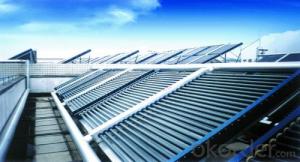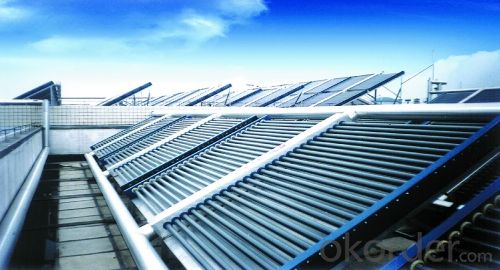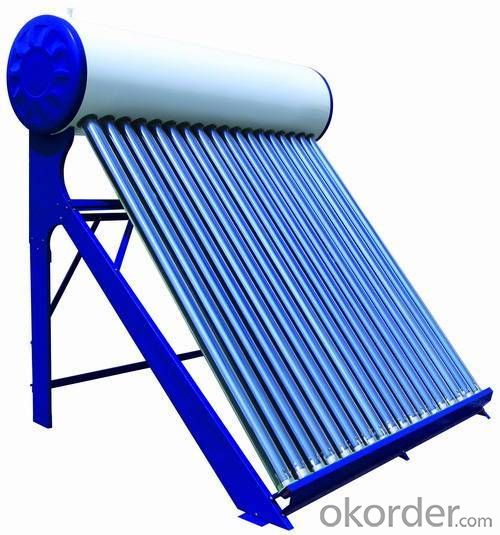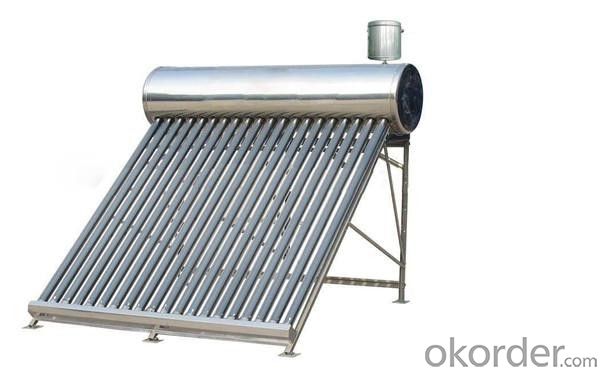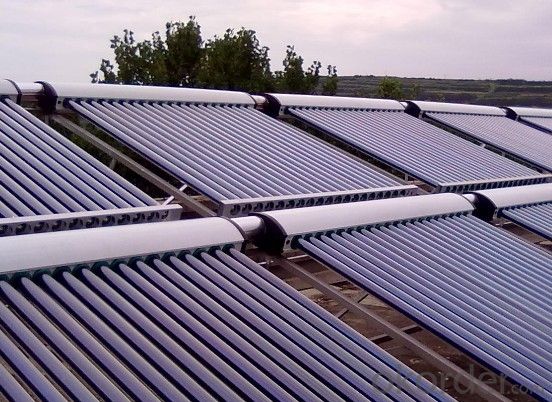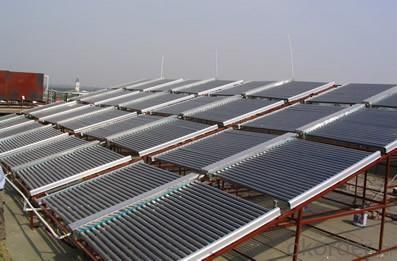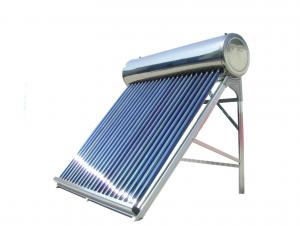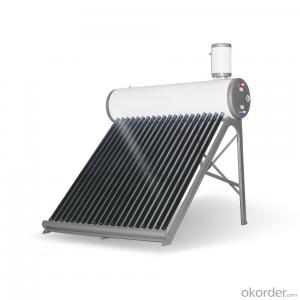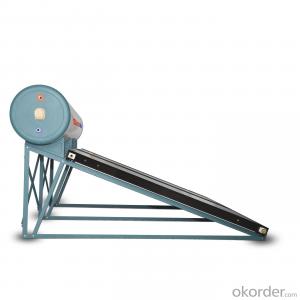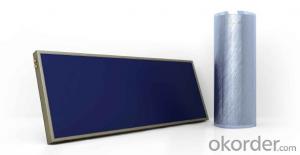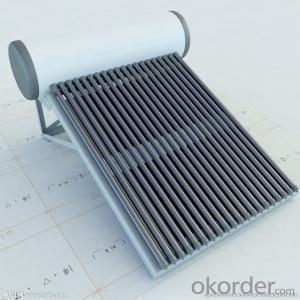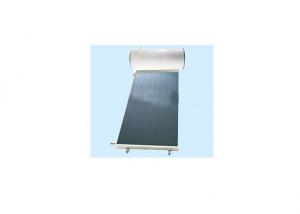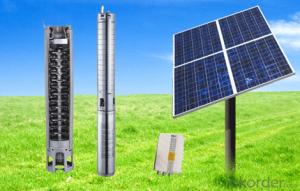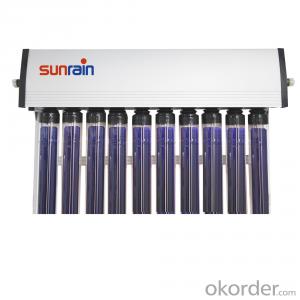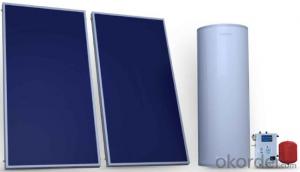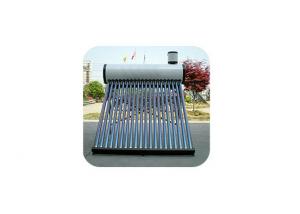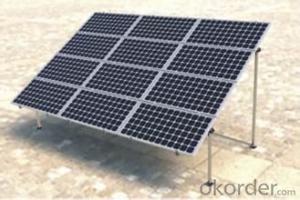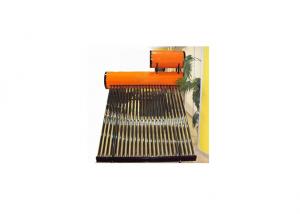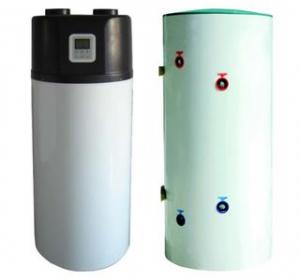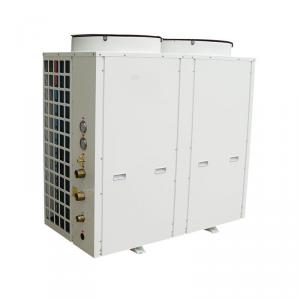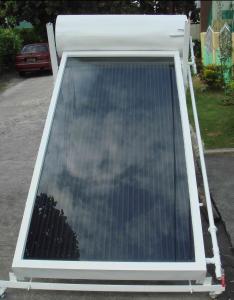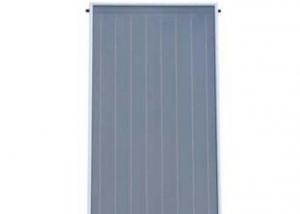Home Depot Solar Water Heater - High Quality Solar Heater for Household Use
- Loading Port:
- China main port
- Payment Terms:
- TT OR LC
- Min Order Qty:
- 10 set
- Supply Capability:
- 10000 set/month
OKorder Service Pledge
OKorder Financial Service
You Might Also Like
Solar water heaters features
1. The upright tank can make the water temperature to a high level. It can hot the water instantly
2. The tank inside the building, the hot water loses less energy than the normal one
3. The solar collector and the tank of solar water heater is separated, that makes the system combine with the building perfectly, which will reduce the sightseeing for the building and environment around
4. Back up with electric heater so that in the day without sunshine hot water can also be used
5. Can be combined with gas or electric heater
6. Max. Pressure: 12bar; Operating Pressure: 6 bar
7. It can be used for other function, such as warming
Solar water heaters working principle
1. The solar collector absorbs solar energy and transmits it to the solar water heater tank through circulation
2. When the temperature of the collector reaches the set value, the controller starts the circulation pump automatically
3. The circulation pump makes heat-conducting liquid circulate automatically
4. The heat-conducting liquid transfers heat to water by lower heat exchanger in the water tank.
5. When the temperature difference between solar collector and heat pipe solar water heaters tank doesn't reach the set value, the circulation pump will be shut automatically
6. In case the temperature of the water tank does not reach Tmax, Electric Heating Element will start to work automatically
Solar water heaters working station component:
1. Operating screen
2. Manometer
3. Pump speed adjust switches
4. Temperature difference circulation pump
5. Flow rate indicator
6. Return circuit connector
7. Safety valve
8. Expansion vessel connector9. Return circuit connector
10. Wall mounting
11. Expansion vessel:8L
12. Pressure resistance: 10 bar pressure for expansion vessel
Solar water heaters specification:
Description | solar water heaters |
Material of out manifold | 0.55mm thickness color steel/ fluorine carbon steel |
Material of inner tank | Food grade 2.0 mm thickness SUS304 stainless steel |
Tank insulating layer | 40mm 45kg/m³ high-density polyurethane foamed |
Inlet and outlet hole | Male G1'' |
Max pressure | 0.6 Mpa |
Solar collector tube | 3.3 Borosilicate glass with N/Al coating |
Thickness of glass tube | 1.6mm |
Vacuum tube tightness | P≤0.005 Pa |
Absorption | as=0.93-0.96 (AM1.5) |
Emission ratio | εh=0.04-0.06 (80C±5C) |
Idle sunning property parameters | Y=220~260m2.C/KW |
Average heat loss coefficient | ULT=0.6~0.7W/(m2.C) |
Bracket: | 2.0mm thickness aluminum alloy |
Tank weight | 75KGS |
Tank size | 560mm Dia x 1810mm Height |
Tank capacity | 300L |
Solar collector | 2pcs 58x1800x15tube solar collector |
Absorber area | 2.811 m² |
Working station | SP116 working station |
Heat exchanger length | Upper:12m, Underside:18m |
Solar water heaters details show:
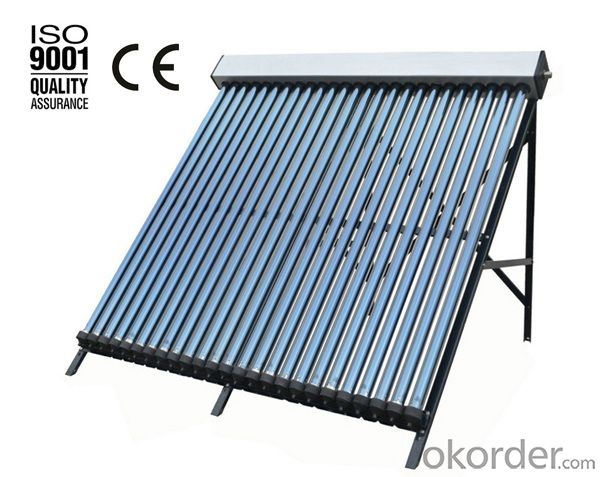
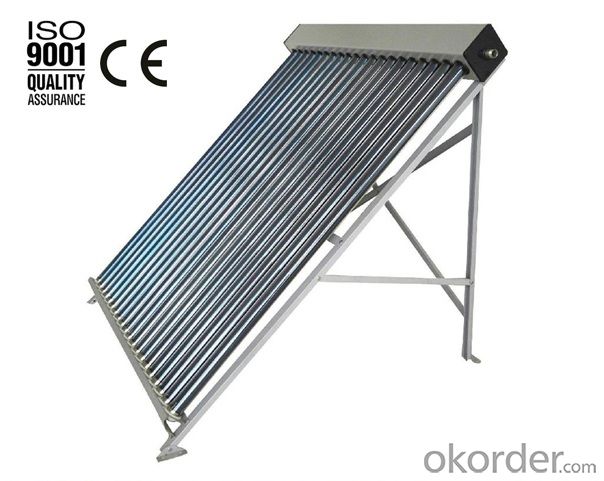
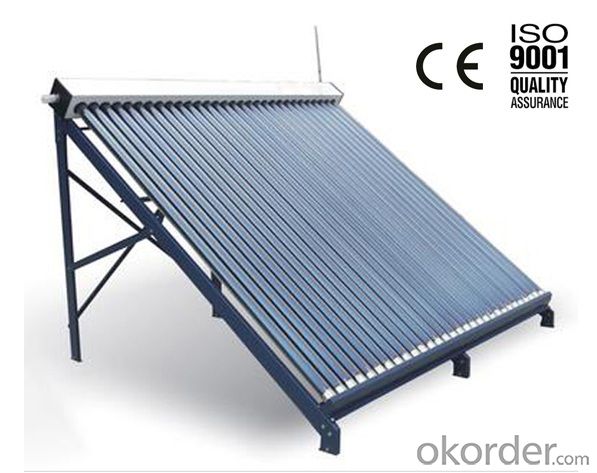
Benefits of this kind of solar water heaters:
1. Prolong the life of your existing water heater
2.Costs less than an electric, gas or oil water heater
3.No maintenance required
4.Lasts longer than a traditional hot water heater
5.Reduce your water heating costs
- Q: Can a solar water heater be used in areas with limited sewage infrastructure?
- Yes, a solar water heater can be used in areas with limited sewage infrastructure. Unlike traditional water heaters that rely on fossil fuels or electricity, solar water heaters use the sun's energy to heat water. They consist of a solar collector that absorbs sunlight and converts it into heat, which is then transferred to the water. This process does not produce any waste or require any connection to a sewage system. In areas with limited sewage infrastructure, the use of solar water heaters can be highly beneficial. Since they do not produce any waste, there is no need for a sewage system to handle the discharged water. Instead, the heated water can be used directly for various purposes such as bathing, cleaning, or even for agricultural or industrial processes. This reduces the burden on the limited sewage infrastructure, preventing potential issues such as overflow or contamination. Furthermore, solar water heaters are typically designed to store and distribute hot water, which means they can provide a continuous supply of heated water even in areas with limited access to electricity. This can be particularly useful in remote or rural regions where electricity is unreliable or unavailable. Overall, the use of solar water heaters in areas with limited sewage infrastructure can provide a sustainable and cost-effective solution for accessing hot water without putting additional strain on the sewage system.
- Q: What is the impact of corrosion on the performance of a solar water heater?
- Corrosion has a significant impact on the performance of a solar water heater. It can damage the components and materials of the system, leading to reduced efficiency and potential failure. Corroded pipes and tanks can restrict the flow of water and decrease heat transfer, resulting in decreased heating capacity and slower water heating. Moreover, corrosion can cause leaks, leading to water loss and potential damage to the surrounding area. Regular maintenance and corrosion prevention measures are essential to ensure optimal performance and longevity of a solar water heater.
- Q: Can a solar water heater be used in areas with limited access to geothermal resources?
- Yes, a solar water heater can be used in areas with limited access to geothermal resources. Solar water heaters utilize the sun's energy to heat water, making them an effective and environmentally friendly alternative in areas where geothermal resources may be scarce or inaccessible.
- Q: How does a solar water heater affect water heating time?
- A solar water heater can significantly reduce water heating time compared to traditional methods. The solar collector absorbs sunlight and heats the water, which can be much faster than relying solely on electricity or gas. Additionally, solar water heaters often use insulated storage tanks to store hot water for longer periods, ensuring a constant supply of heated water.
- Q: How to control the temperature of solar water heater
- And if you give the morning water heater with water, will probably get a box of warm water is not enough. I think half a box of cold water is better than water. If the family less, actually half box water enough. If the sun has risen, the water temperature is very high, so you can continue to heat water heater in the water.To cool down, there is no way, can only add cold water!
- Q: What are the components of a solar water heating system?
- The components of a solar water heating system typically include solar collectors, a heat transfer fluid, a storage tank, a backup heating system, and a control system.
- Q: Are there any government incentives for installing a solar water heater?
- Yes, there are government incentives for installing a solar water heater. These incentives vary by country and region, but they typically include tax credits, grants, rebates, or low-interest loans to help offset the cost of installation. Additionally, some governments may offer feed-in tariffs or net metering programs, allowing homeowners to earn credits or sell excess solar energy back to the grid. It is advisable to check with local government agencies or energy authorities to determine the specific incentives available in your area.
- Q: Can a solar water heater be used in areas with limited access to skilled technicians?
- Yes, a solar water heater can be used in areas with limited access to skilled technicians. Solar water heaters are relatively simple and can be easily installed and maintained with basic technical knowledge. They require minimal maintenance and have fewer moving parts compared to other forms of water heaters. Additionally, there are many resources available, such as user manuals and online tutorials, that can guide users in the installation and troubleshooting processes.
- Q: Can a solar water heater be used in areas with limited access to sustainable development initiatives?
- Yes, a solar water heater can be used in areas with limited access to sustainable development initiatives. Solar water heaters are a sustainable and environmentally friendly solution that can be implemented in various locations, including areas with limited access to sustainable development initiatives. They can provide reliable and cost-effective hot water without relying on traditional energy sources, making them particularly suitable for off-grid communities or areas with limited infrastructure. By harnessing the power of the sun, solar water heaters can contribute to improving living conditions and promoting sustainable development in such areas.
- Q: Can a solar water heater be used in areas with limited access to wave power?
- Yes, a solar water heater can definitely be used in areas with limited access to wave power. Solar water heaters operate by utilizing the energy from the sun to heat water, and they do not require wave power to function. As long as there is sufficient sunlight available, a solar water heater can efficiently heat water without the need for any other power source. Therefore, even in areas where there is limited access to wave power, a solar water heater can be a practical and sustainable solution for heating water.
Send your message to us
Home Depot Solar Water Heater - High Quality Solar Heater for Household Use
- Loading Port:
- China main port
- Payment Terms:
- TT OR LC
- Min Order Qty:
- 10 set
- Supply Capability:
- 10000 set/month
OKorder Service Pledge
OKorder Financial Service
Similar products
Hot products
Hot Searches
Related keywords
